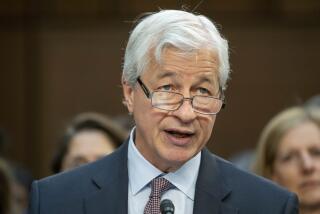At G-20 meeting, officials seek to quell talk of ‘currency war’
WASHINGTON -- Top finance officials and central bankers representing the Group of 20 largest economies are gathering in Moscow, and one of their chief concerns this weekend is how to defuse a brewing currency war, or at least the increasing talk of one.
Since Japan’s Shinzo Abe government began jawboning last fall about the yen being too expensive and pressuring its central bank to pursue more stimulative monetary policy, the Japanese currency has fallen sharply against the dollar and some other major currencies. That has triggered a fresh round of debate about currency manipulation and competitive devaluation. A cheaper currency tends to help a country’s exporters sell their goods abroad.
For years the U.S. and some other developed nations complained about China’s currency policy. Beijing tightly controls the yuan, whereas the yen, dollar and euro are traded freely in international markets. More recently, though, the tables have turned somewhat at the G-20, made up of the largest developed and developing countries in the world.
As the Federal Reserve and some other central banks of struggling advanced economies have pumped more money into their financial systems, the result has been a weakening of their currencies. That hasn’t sat well with countries such as Brazil seeing jumps in their currencies’ values and inflationary pressures from cheaper imported goods.
Fed Chairman Ben S. Bernanke, in brief remarks at a meeting Friday in Moscow, didn’t wade into the currency debate. But his comments made clear he sees a difference between a deliberate attempt to weaken one’s currency and a byproduct of actions taken to help one’s domestic economy. The Fed is now engaged in its third round of major asset purchases, buying $85 billion worth of Treasury and mortgage-backed securities a month, in addition to keeping short-term rates near zero.
“With unemployment at almost 8%, we are still far from the fully healthy and vibrant conditions that we would like to see,” Bernanke said, according to Bloomberg News. “The United States is using domestic policy tools to advance domestic objectives.” The Fed chief added: “We believe that by strengthening the U.S. economy we are helping to strengthen the global economy as well.”
At the G-20 meeting this weekend, top finance officials are expected to issue a joint statement addressing currency policies as well as concerns about excessive tightening of fiscal budgets.
“G-20 members will have to bring their exchange rate frameworks into alignment so that we grow together and avoid a downward spiral or beggar-thy-neighbor policies,” said Lael Brainard, the Treasury Department’s undersecretary for international affairs.
Analysts, though, doubted that the G-20 could come up with rules that have teeth. More likely, they said, the statement will probably affirm that monetary policy should be aimed at domestic economic growth and inflation considerations, not targeted at exchange rates.
“Everybody is in one way or another complicit in this,” said Guy de Jonquieres, a senior fellow at the European Center for International Political Economy, referring to sovereign nations undertaking monetary policies to support their domestic economies and interests. “What I don’t see happening here is a real attempt to coordinate policy here.”
ALSO:
U.S. trade picture brightens at end of 2012
Japan’s central bank pledges new stimulus to fight deflation
Federal Reserve holds steady on interest rates and stimulus effort







